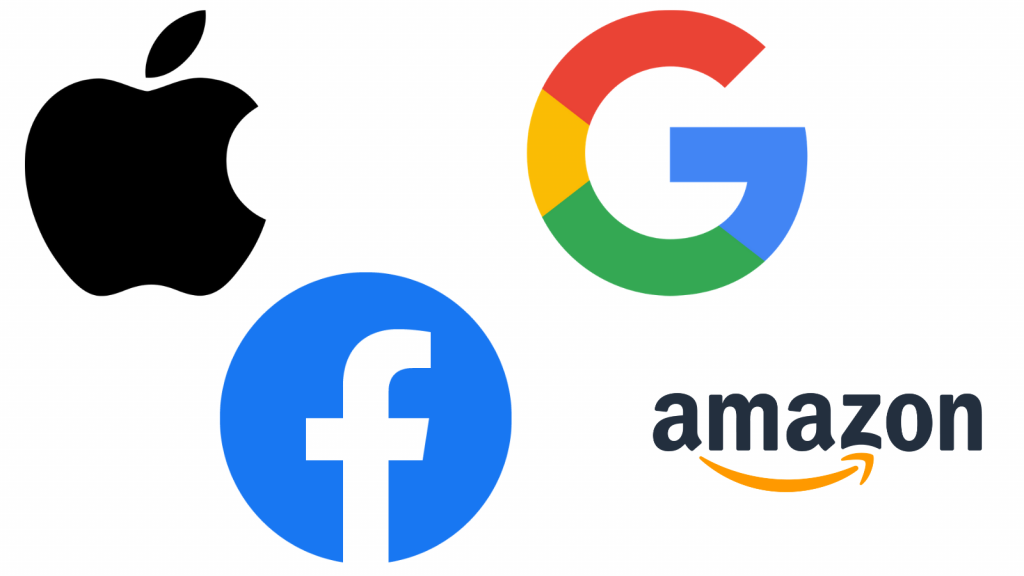LG’s 100-Inch QNED evo AI TV Redefines Big-Screen Viewing in South Africa In a bold leap forward for home entertainment, LG Electronics South Africa…
US tech antitrust hearing: Roundup of the biggest tech company reveals

In a historic antitrust hearing, tech company CEOs testified before US Congress about anti-competitive behaviour.
The hearing lasted over five hours on 29 July, with CEOs from four major tech companies — Facebook, Amazon, Google, and Apple — appearing on video before Congress.
Congress was prepared with email documents and other statements that questioned anti-competitive behaviour from the companies.
Here’s a roundup of some of the coverage and biggest admissions by CEOs during the hearing…
Emails show how Amazon targeted Diapers.com
A book and media reports have told the story of how Amazon targeted its competitor Diapers.com for acquisition. When the company did not accept the buyout proposal from Amazon, Amazon allegedly used its algorithm to consistently undercut Diaper.com’s prices.
Amazon operated at a massive loss on its diaper sales, apparently all in an effort to stall Diapers.com’s income and force the company into a buyout.
While Amazon CEO Jeff Bezos testified that he didn’t recall doing this, documents shared by Congress showed how the e-commerce site targeted its competitor specifically.
I had the opportunity to question Jeff Bezos on Amazon’s questionable acquisition of smaller businesses to quash competition during a @HouseJudiciary hearing today. Americans deserve to know the truth about anti-competitive practices that hurt consumers. pic.twitter.com/zDRy1wEgej
— Congresswoman Mary Gay Scanlon (@RepMGS) July 29, 2020
The emails specify that Amazon considered Diapers.com as a competitor. They also outline the process of matching and undercutting their prices.
Further emails also outlined plans to undercut subsidiaries of Diaper.com’s parent company, such as Soap.com.
Amazon used its cash flow as part of a “plan to win against Diapers.com in the diaper/baby space”.
“To the extent this plan undercuts the core diapers business for diapers.com, it will slow the adoption of soap.com,” an email by then-VP Doug Harrington says.
Bezos email shows how Ring was bought for market position
In emails submitted by the committee, Amazon CEO Jeff Bezos notes his interest in buying Ring is not due to its technology.
“To be clear, my view here is that we’re buying market position — not technology. And that market position and momentum is very valuable,” Bezos writes in an email.
Amazon employees then outlined plans to offer an acquisition offer for Ring.
Facebook viewed Instagram as competition prior to buying
Facebook CEO Mark Zuckerberg admitted during the hearing that he viewed Instagram as a competitor. As a result, the company purchased Instagram.
Some have viewed this as an attempt to neutralise competition, which goes against antitrust law.
Today, during @HouseJudiciary's big tech antitrust investigation hearing, I asked Mark Zuckerberg to explain how Facebook's 2012 purchase of Instagram—a direct competitor—was not a prime example of anti-competitive monopolization.
Zuckerberg's answer proved my point. pic.twitter.com/hgTxKEspFD
— Rep. Nadler (@RepJerryNadler) July 29, 2020
However, when questioned on this, Zuckerberg pointed to the fact the FTC approved the acquisition.
Zuckerberg was also questioned on emailed comments that competing startups could simply be bought.
In 2012, Zuckerberg wrote that Facebook “can likely just buy any competitive startups"
In 2014, Facebook’s CFO referred to the company’s acquisition strategy as a “land grab”
We have a name for this, it is monopoly. pic.twitter.com/ggjSISPAXi
— Rep. Joe Neguse (@RepJoeNeguse) July 29, 2020
Zuckerberg, however, said that he wrote the comment as a joke.
Facebook is currently facing an advertising boycott. Boycott organisers have also called for antitrust investigations into the company.
Apple accused of anti-competitive behaviour on App Store
Subcommittee members questioned Apple CEO Tim Cook on the App Store’s dominance over mobile apps available to iOS users.
While Cook says that apps are subject to the same rules, the committee questioned treatment of competing app services.
Congress also brought attention to a deal with Amazon that changed Apple’s usual commission fee for subscriptions.
Meanwhile, members also questioned whether Apple used its App Store control to bully competitors into joining Apple services.
Apple was accused of pressuring Random House into selling ebooks on the Apple iBook Store by denying the publisher its own app on the App Store.
Documents from the Hearing on “Online Platforms and Market Power: Examining the Dominance of Amazon, Apple, Facebook and Google" pic.twitter.com/Pti847buK9
— House Judiciary Dems (@HouseJudiciary) July 29, 2020
Google accused of stealing content and leveraging search
Businesses that sent complaints to Congress accuse Google of stealing content for their own services. When confronted, Google allegedly used its search engine dominance to delist companies.
One such accusation came from Yelp, which said Google had stolen reviews in 2010. When asked to stop, Google allegedly threatened to de-list Yelp from search results.
Google CEO Sundar Pichai did not confirm or deny the allegations. But since he only became CEO in 2015, he said he would learn more and engage further.
The company was also accused of privileging its own products in its search engine results.
Some Republican antitrust committee members accused Google of political bias in its search results.
Pichai assured that Google would not use its search engine to favour one electoral candidate over the other.


